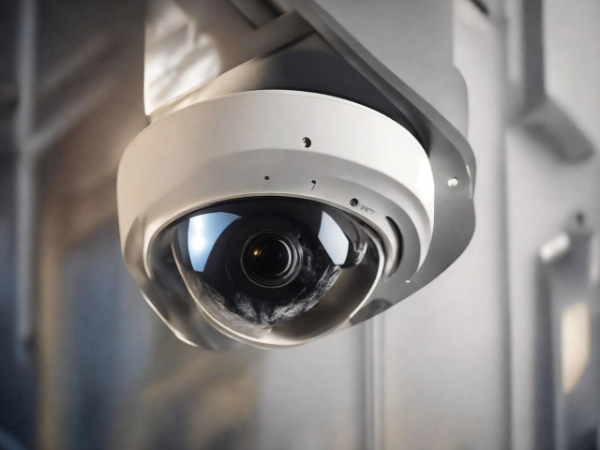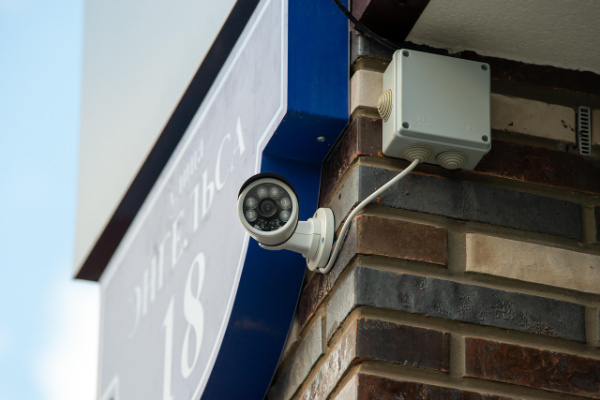Can Access Control Systems Be Integrated with CCTV? A Complete Guide for Offices, Factories, and Facilities
In today's world, security is no longer optional—it's essential. As businesses, offices, residential buildings, and industrial facilities look for smarter, more reliable ways to manage access and monitor activity, two technologies are frequently used:
- - Access Control Systems: to manage who can enter and exit
- - CCTV (Closed-Circuit Television): to visually monitor and record events
But a common and important question is:
"Can Access Control systems be integrated with CCTV?"
The short answer: Yes, they can—and they should.
This article explains how the integration works, the benefits, what’s required, and who it’s most suitable for.

What Is an Access Control System?
An Access Control System manages who can enter (and sometimes exit) specific areas within a building. It authorizes access through methods like:
- - RFID keycards or fobs
- - Fingerprint or facial recognition
- - PIN codes or QR codes
- - Mobile app or Bluetooth access
These systems also log access attempts by time, date, and user—providing accountability and visibility.
What Does CCTV Do?
CCTV systems use security cameras to record and monitor real-time video footage. They're commonly installed at:
- - Entry and exit points
- - Lobbies and hallways
- - Warehouses and loading zones
- - Parking lots and external perimeters
They provide invaluable evidence in the event of theft, accidents, or unauthorized access.
Can Access Control Be Integrated with CCTV?
Absolutely. Integrating Access Control and CCTV transforms them from standalone systems into a powerful security ecosystem.
How Does It Work?
- - Each time a person scans a card or uses biometric access, the CCTV records the moment.
- - The access control software links with the camera feed via a centralized Video Management System (VMS).
- - Visual and data logs are merged—allowing you to review who entered, when, and what happened on video at that time.
What’s Required for Integration?
- - Network-based Access Control panels
- - IP Cameras
- - A compatible VMS or unified platform (e.g., ZKTeco ZKBioSecurity, HikCentral, or Dahua DSS)
- - Stable LAN or PoE network infrastructure
Key Benefits of Integration
- 1. Accurate Incident Review
When reviewing access logs, you also get visual footage. For example:
| If someone enters after hours, you can see exactly who it was—not just their ID on the system.
- 2. Enhanced Security
You can detect and prevent incidents like tailgating, card sharing, or unauthorized access.
- 3. Real-Time Alerts
Some platforms allow live notifications when abnormal access occurs—such as repeated failed attempts or entry during restricted hours.
- 4. Reduced Human Error
Security personnel don’t have to manually match logs with surveillance footage—it’s all in one system.
Real-World Use Cases
Office Buildings
Every employee uses a keycard or mobile access to enter. Each time the door is unlocked, the nearby camera records a timestamped video clip.
If someone reports a security concern, the admin can search logs and immediately view corresponding footage.
Factories
Factories with sensitive zones use biometric access. Cameras confirm each worker’s identity at the moment of access.
Attempts to use a photo or spoof biometric data trigger real-time alerts and auto-recorded video logs.
Equipment & System Requirements
To integrate these systems effectively, you need:
- 1. Access Control Hardware with Networking
- - Must support TCP/IP or RS-485
- - Should connect to a centralized software platform
- 2. IP Cameras (Network-Based)
- - Should be ONVIF-compliant for easier integration
- - Supports live and recorded feeds
- 3. Video Management Software (VMS)
Examples:
- - ZKTeco ZKBioSecurity
- - Hikvision IVMS
- - Dahua DSS
- - Milestone XProtect
- 4. Good Infrastructure
- - LAN network with sufficient bandwidth
- - Power-over-Ethernet (PoE) switches if needed
- - Server or NVR with enough storage for both logs and video

Tips Before Installation
- - Ensure compatibility between Access Control brand and CCTV system
- - Work with a team that understands both physical security and networking
- - Design the system layout carefully:
- Camera angles must clearly capture the face and access point
- Devices should be installed where there’s minimal tampering risk
Who Should Consider This Integration?
- - Office buildings with 50+ employees
- - Factories or warehouses with sensitive zones or 24/7 operations
- - Residential communities needing access logs for visitors
- - Educational institutions ensuring only authorized staff and students enter
Compliance & Audit Trail
Many industries now require digital logs and video evidence for compliance, including:
- - ISO 27001 for information security
- - GMP (Good Manufacturing Practices) in factories
- - Occupational safety audits in warehouses
Having integrated systems makes audit preparation faster and more reliable.
Additional Features When Integrated
Some VMS platforms offer:
- Face recognition matching between camera feed and access logs
- License plate recognition linked to gate access
- Analytics dashboards for visitor behavior and peak traffic times
Conclusion: Should You Integrate Access Control with CCTV?
Yes—you absolutely should, especially if:
- - You manage a medium to large property
- - You need real-time alerts and event validation
- - You want to prevent security breaches proactively
- - You must provide video evidence or access logs for audits
By integrating both systems, you improve security, save time, and reduce risk.
You Might Also Like
🔍 Best CCTV Camera Brands in 2025
Compare top-rated security cameras with smart features for seamless integration.
🔍 What are the Components of a CCTV Camera?
Understand the key parts that make a surveillance system reliable and clear.
Get Professional Installation from Visioneers Inc.
At Visioneers Inc., we specialize in:
- - Designing secure, integrated Access Control + CCTV systems
- - On-site surveys and tailored recommendations
- - Installation, configuration, and staff training
- - Ongoing support and maintenance
📞 Call us: (510) 972-3311 | 📩 Request a Quote | 📅 Schedule a Site Survey
